Unveiling The Mystery Of ‘The Death of Rasputin’ (Interview)
Tsarist Russia by way of Governor’s Island
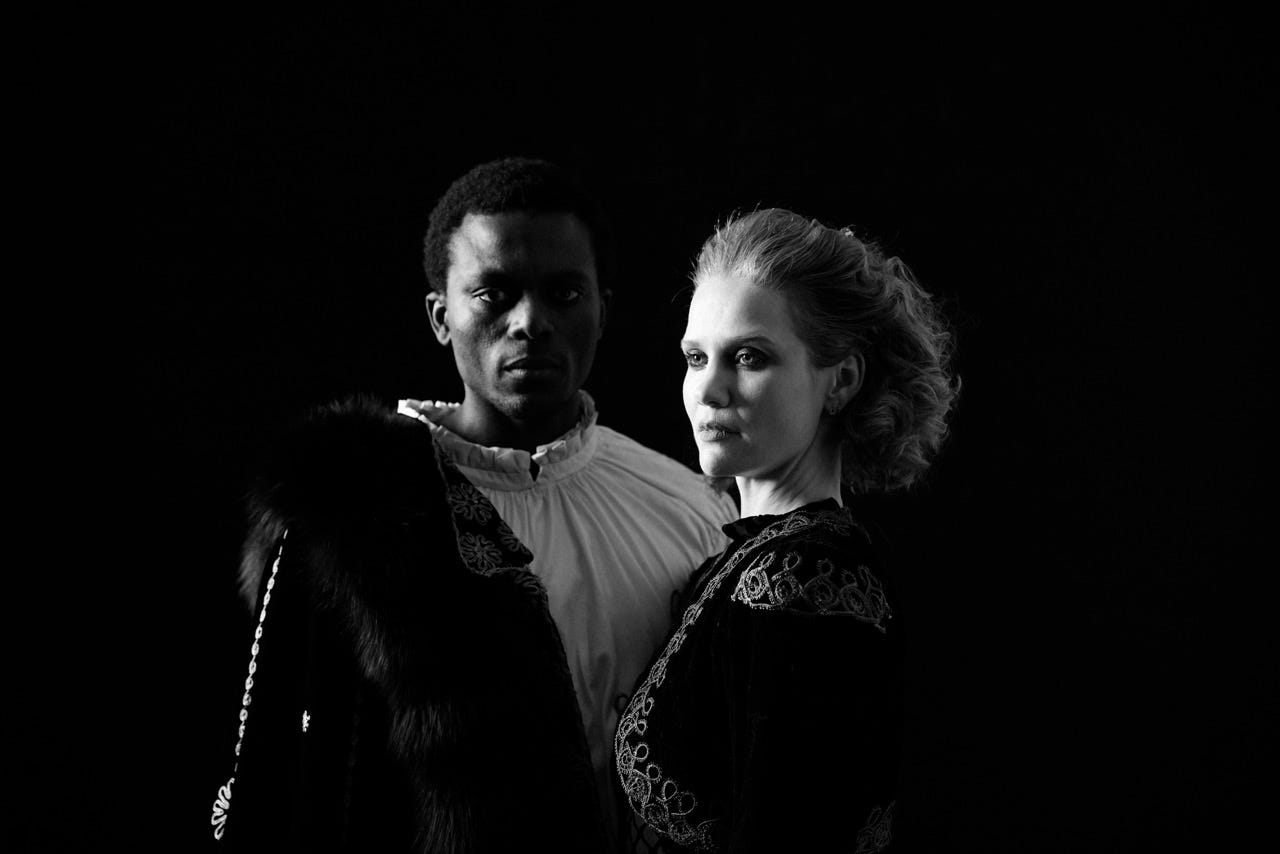

Recently, I went to Governor’s Island to chat with the directors of The Death of Rasputin, Ashley Brett Chipman and Hope Youngblood. While there are many, many, secrets lurking in Russia that cannot yet be shared, they sat down for an interview and shared some of their thoughts.
Previews for The Death of Rasputin start tonight, and the show is currently scheduled to run through May 11th. Tickets are available at at $140.
This interview has been machine-transcribed (and corrected), and has been edited for clarity and length. Answers credited to The Death of Rasputin are a mix of both directors.
No Proscenium: What are we doing here? What is this show? I realize that’s a very big question with a multitude of answers.
The Death of Rasputin: It’s a party. It’s an experience. It’s a narrative. It’s inviting the audience to participate in the retelling of a historical figure. One part of it that I can speak to that I’m really fascinated about is we’re really working to find collective engagement.
And so the audience participation and many of the scenes we’re looking towards… how can we bring people, not only hold them more into the narrative with the interaction, but also have an experience with each other that hopefully either delights or transcends or brings you to a place where you can be even more a part of the world.
I think of walking into a movie and kind of being a character in the story is really like, or feeling like you’re a character in the story is our hope.
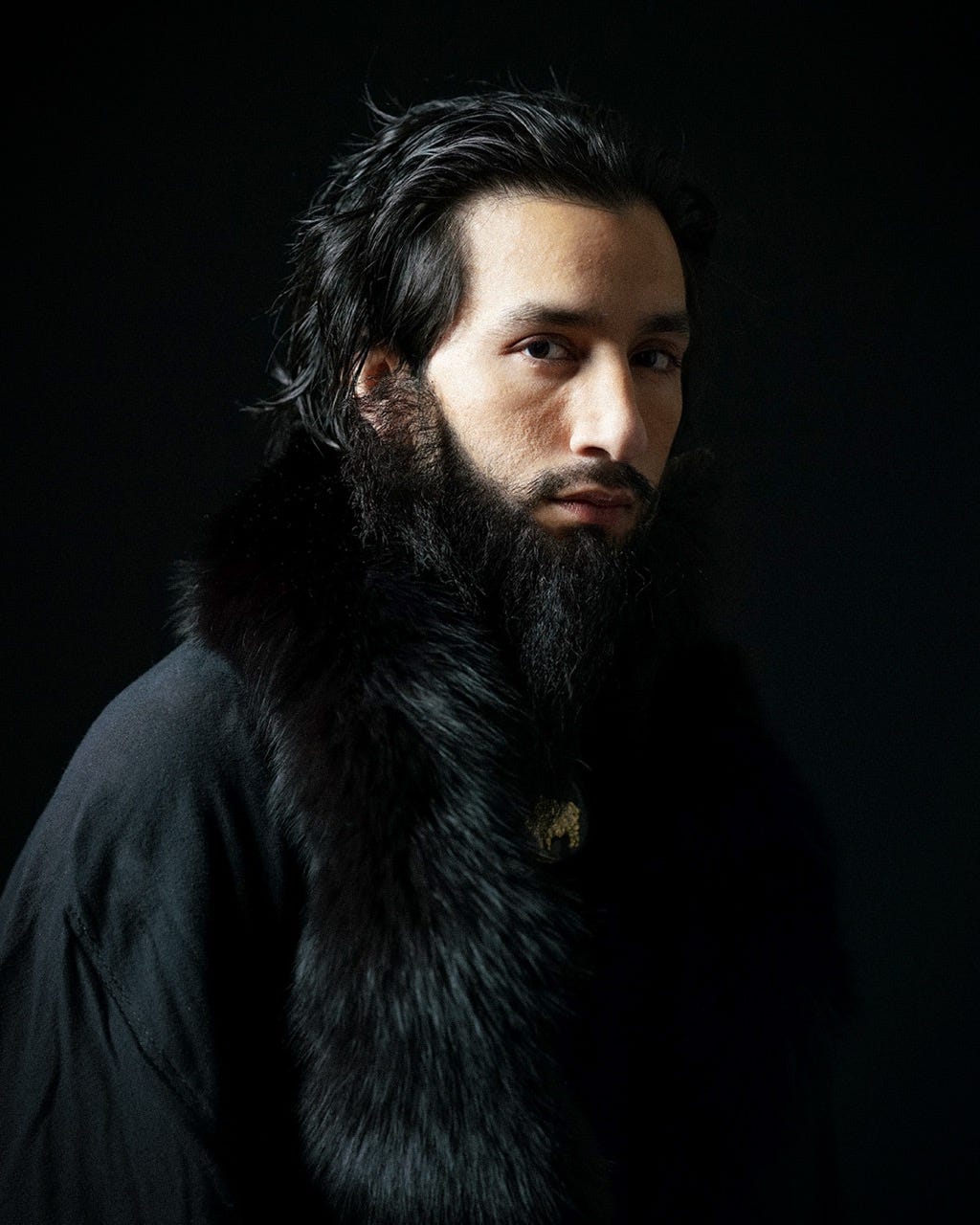
NP: Who are you as an audience? What character are you as an audience member in this show?
TDoR: Yeah. So we kind of divided the participants into various worlds. There’s the cult of Rasputin, a devoted cult. There’s the cult of opulence, which follows the nobility, and there’s a cult of the revolution that takes place downstairs in the cocktail bar. And so that’s very much the working people who want more rights, better pay. The working class versus the opulent class.
So I think if you become a character in the story, you’re deciding where you want to lie and what story you want to see.
NP: And can you move between those over the course of the evening, or, when you join the cult, are you [permanently] in the cult?
TDoR: No. You’re allowed to wander where you’d like to go. But we set those parameters early on because it felt like an interesting lens that you could identify with. And also, ultimately, the story revolves around Rasputin, who is very much a cult leader.
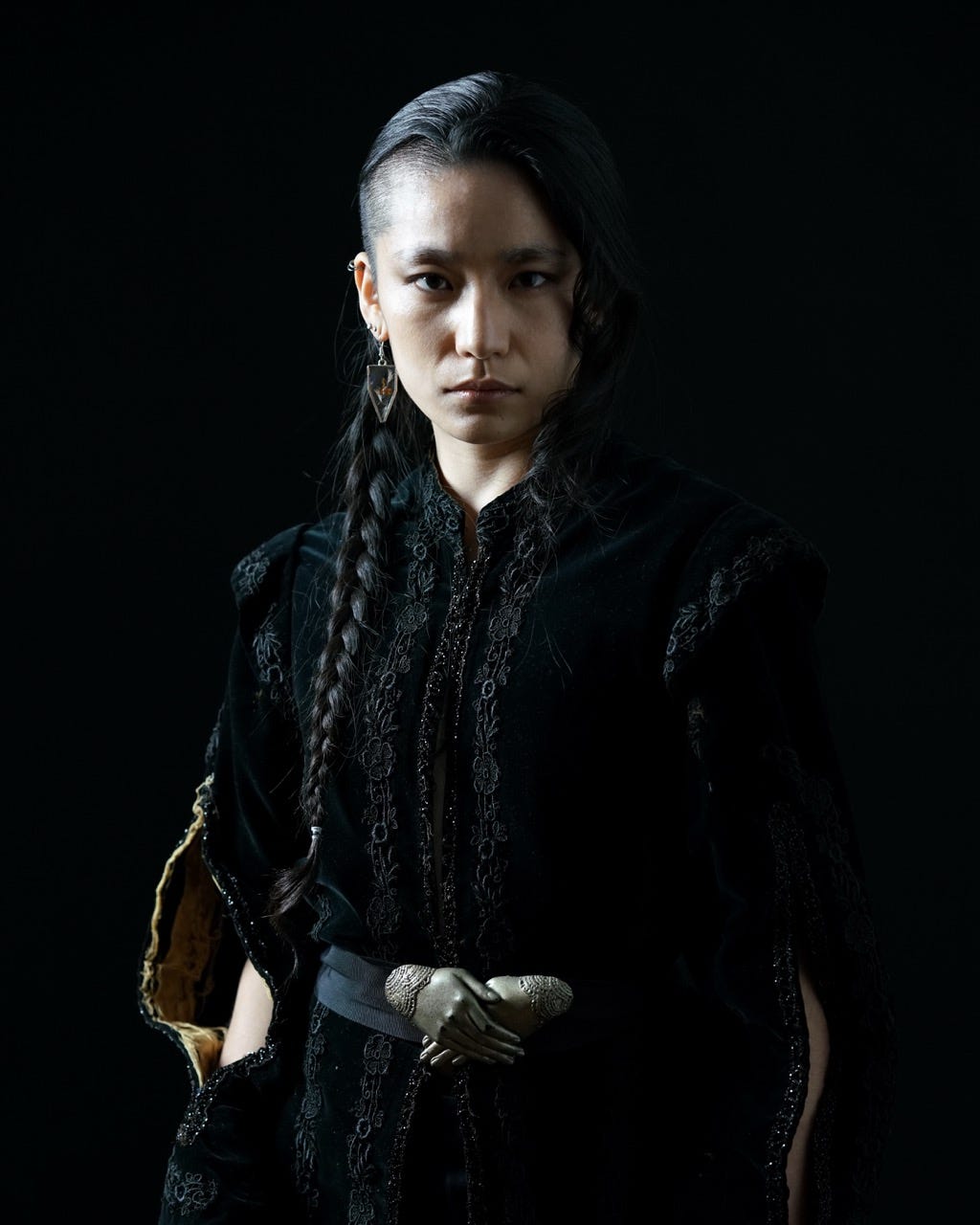
NP: We’re in a really interesting moment in New York City immersive theater right now. The show that sort of defined New York City immersive theater for over a decade, Sleep No More, has departed. And so, that show has set for a lot of patrons a very particular vision of what immersive and promenade theater is. Especially in this city. But it’s not here anymore. How is this show sitting in that moment?
TDoR: I feel lucky that although I’m part of that lineage, that I’ve had other experiences that have informed my artistic practice. And one thing when Ashley came to me to talk about this work was, was about folding audience into the experience even further and trying to see how we can really see audience and still have this kind of sandbox world, but dial up the collective participation. Actually seeing the audience and having them be really, truly present in the scenes. We’re continuing to explore that. Anytime you do that, you’re opening a whole world. So we’ll have to do a lot of a lot of work as we continue and see how much we can do, but to me, if we were successful, it would be having one moment in the show that was a truly collective participatory moment.
NP: What do you mean by that?
DoR: What if we could all see each other and all breathe together and all feel like what it’s like to be devoted, feel what it’s like to be a follower, feel what it’s like to be in a charismatic presence and understand that together?
We had this really high desire for participation. And of course, as you start to make something, you’re like, okay, that one will work and that one won’t work, and oh, we can’t tie up that end, so we can’t go that way, you know?
But it would be satisfying and successful if we could have those moments where the audience comes together and it’s not just a spectacle. Not just seeing spectacle, but having, on that same energetic level, an exchange, a transcendence, with another audience member.
Our world is becoming inundated with screens and separation and so to build a really playful and creative way to share energy and and meet people… that to me is exciting. Those are our north stars. Like, can it hold lightness?
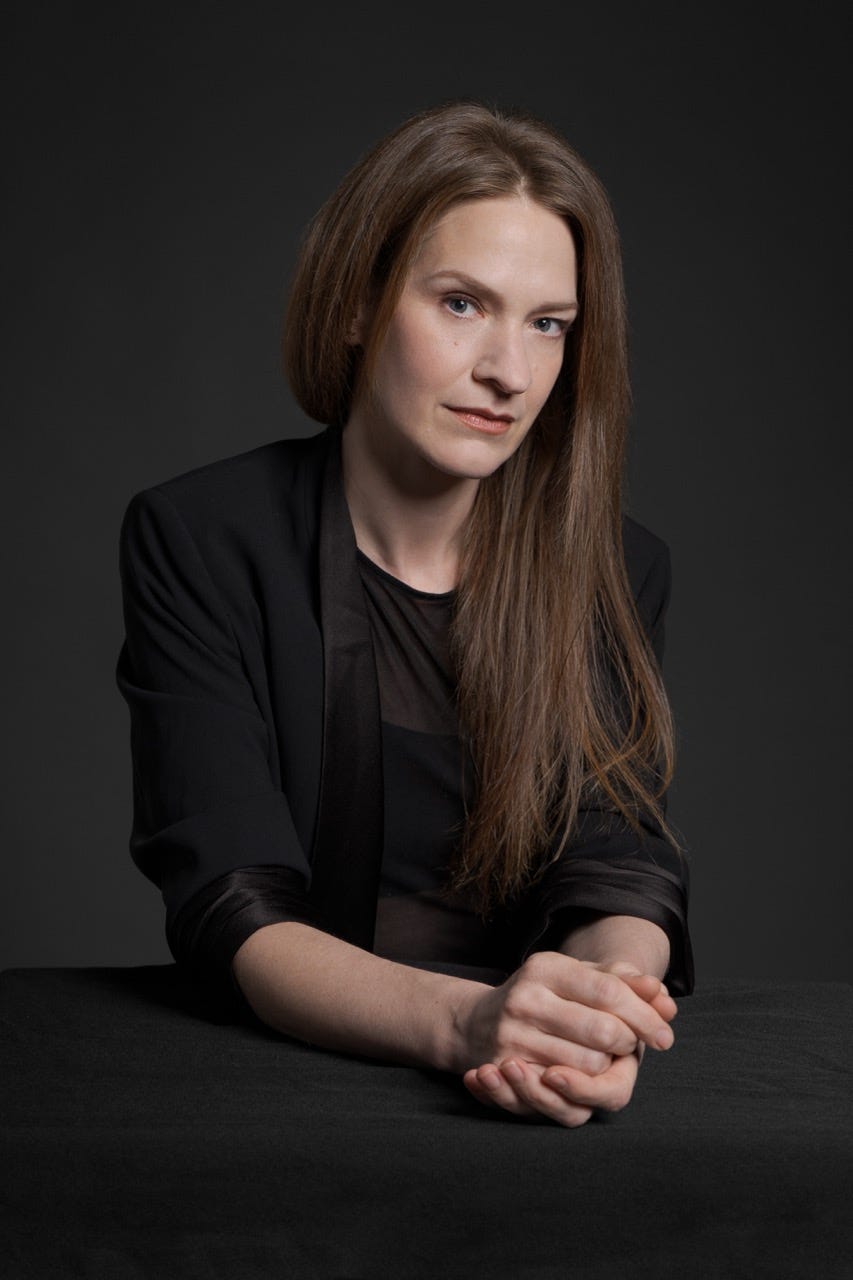
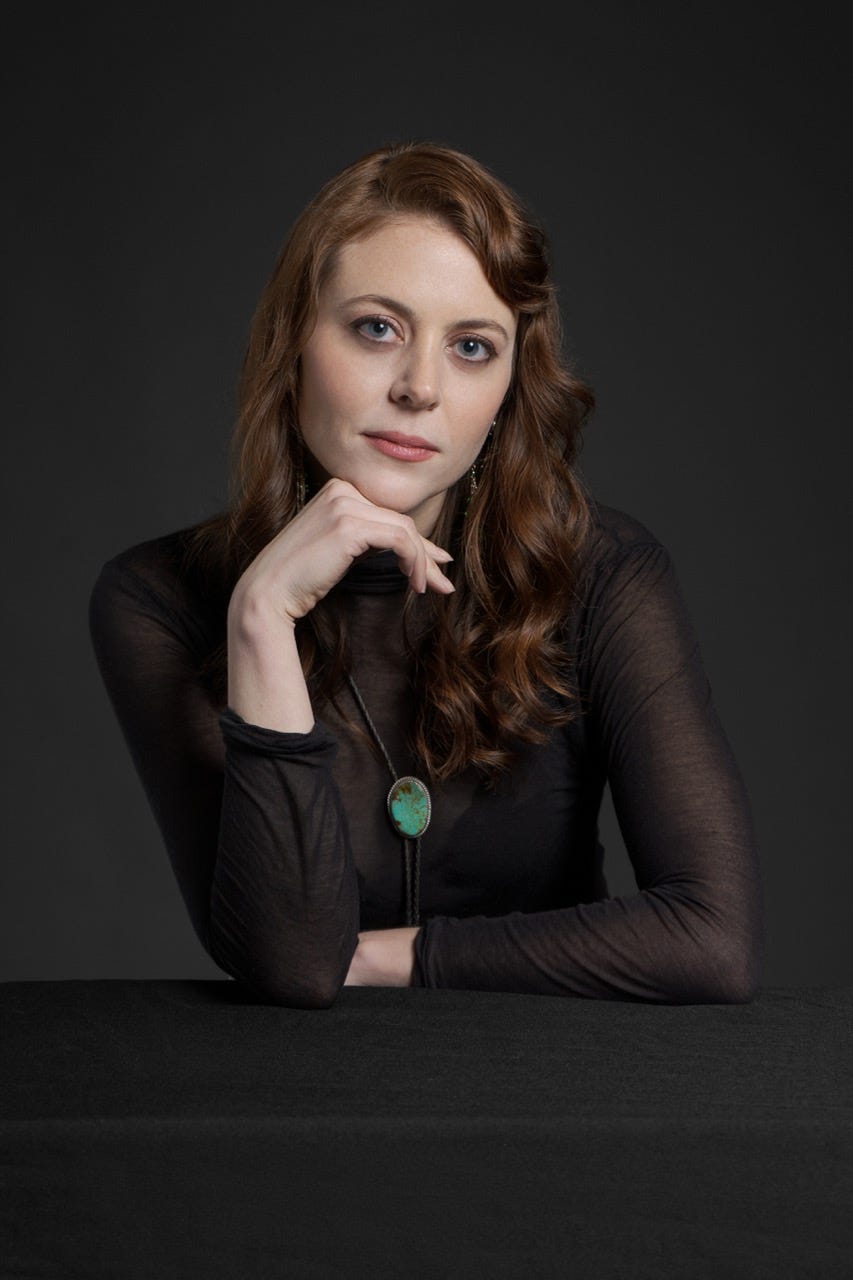
NP: So I heard you answer this a little bit, but I think there’s a restatement in there that would be useful. What are you hoping to accomplish in the hearts of the audience with this show?
TDoR: I do want some sort of reflection on the present. You know, as we tell the story, it’s fascinating to see historical moments that seem to repeat themselves in certain ways. Empathy, maybe. It’s really about being caught up in something. And we’ve talked a lot about cult leaders and what makes someone charismatic enough that you want to follow them, forget the truth or forget your values, or forget what is right and wrong, and you follow them.
And now, all the language of media, you’re following people. And we are kind of giving up this, I don’t know… reality in order to do that. What I love so much about immersive is the choose your own adventure, kind of childlike wonder. And so carrying that through with this political introspective lens that we’re presenting, a lot of it is about getting swept into the story.
NP: You mentioned choose your own adventure. Certainly a touchstone for a lot of us. There are immersive experiences where you are immersed in one adventure. And if you come back, you’ll be immersed in the same adventure, which can be rewarding in its own right. Then there are other shows where you could go ten times and you would see completely different things.
It’s a spectrum. Where does this one fall?
TDoR: You know, we’re trying to find those layers so that it can have a lot of depth to it. And then because of the format, you can go wherever you want. So you would see a different show. You know, as far as the scale, we’re not on the scale of bigger shows.
We’re really playing with it so that, if you hear a conversation, you can choose to hear this conversation over here, or you can choose to have that conversation over there. And sometimes it’s a larger, more public conversation, and sometimes it’s a little quiet conversation.
Even with dialogue that we can play with it on different scales and push and pull it so that it feels like it’s dynamic and you want to be in a different place in the room to hear this little whispered conversation over here, versus something that’s public.
I mean, there are ten scripts, it was a crazy endeavor. So you really could come ten times if you were systematic about following each character. You would get ten completely different stories where they touch. Certain scenes are shared. It’s truly a lot of fun.
It’s going to be really interesting to see people jumping around and the story that they get by the end, because it’s going to be dependent on who they interact with.
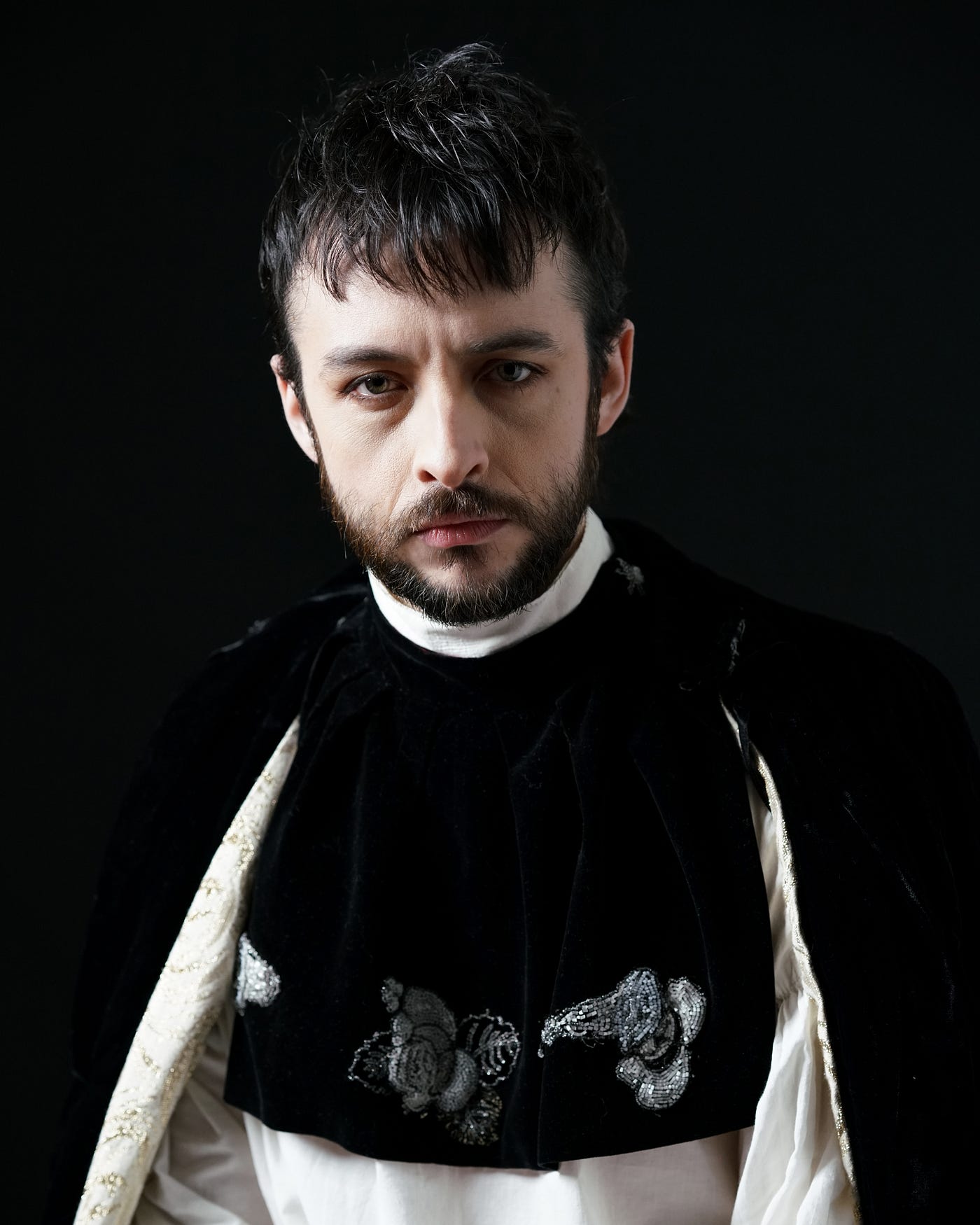
NP: What is the scale? You know, you said ten characters, or ten scripts at least. What are some other scale numbers?
TDoR:We have two floors. 150 audience members. And I think there’s 16 rooms, going from the palace to Siberia to Rasputin’s apartment… we have to keep some secrets. Sorry.
NP: You’re allowed! Expected? Should, probably.
TDoR: Yeah, I think it’s just a bit more intimate than a Sleep No More or something. Which I’m really excited about. And especially being unmasked. If you’re in a room with ten people and two characters, what does that feel like? It’s the shared collective experience that’s quite exciting.
NP: Audience participation is very scary to a lot of people. Can you just talk about that a little bit? Like how [do] you balance that fear that lots of people have, with a show where you are prioritizing participation quite so heavily?
TDoR: We talk a lot about the invite and then how you layer something so that you can get there, because audiences can do a lot. I feel like that’s what I’ve discovered through making immersive works is that you can get audiences to a place where they are incorporated into something and feel really powerful and empowered to do things. But you have to take all those little micro steps so that you can get there. And some people are obviously going to dive in way more than others.
Then creating something that, if someone wants to step back, that’s okay, you can see it from the outside and still be involved in it or just having a lot of different levels of “ask” of the audience so that you can hopefully get to a larger ask.
People often self-select, or they make themselves available or they don’t. And our actors are very aware of that. You’re not going to pull the person in the corner who really doesn’t want to come. It’s about an invitation and a dialogue. That’s the joy of bringing in the audience, then you spend your first few shows just watching the audience and how they interact. And you can kind of tailor things from there.
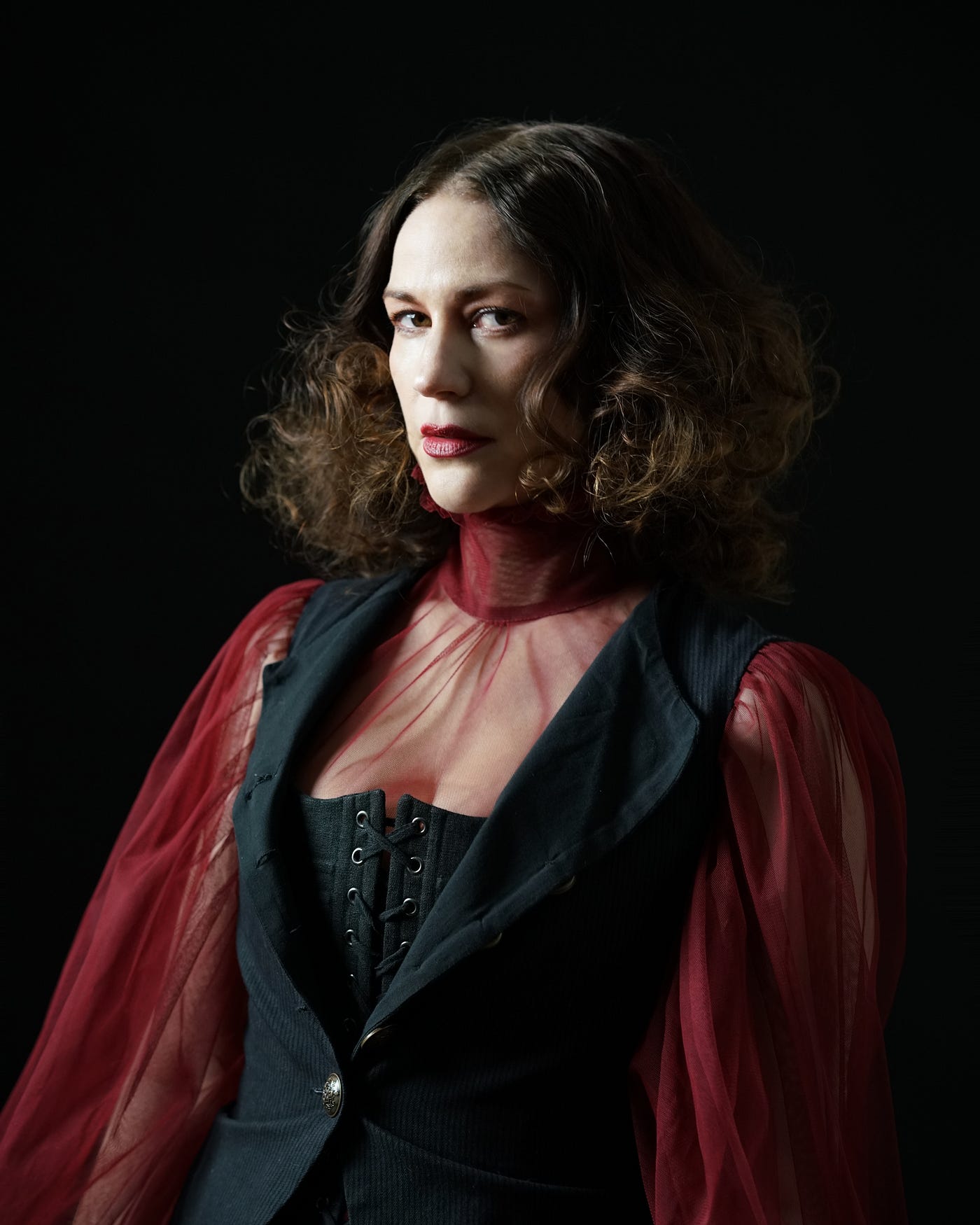
NP: So speaking of play and participation, the digital marketing for this show has been fascinating to watch. Basically like on sort of immersive fan Discords, Rasputin shows up, as Rasputin, like, hey, what’s up? I’m Rasputin. Join my cult. And then it’s taken off from there in this really interesting, very playful way. Was that a strategy from the start?
TDoR: We have an incredible social media person who’s working with us, that really has a delightful spirit. And initially I was… I don’t like social media. But then we started talking about, how it’s almost like performance art. And then I went from going like, never put me on any social media, to just that thought that actually we can make this performance art and it doesn’t have to live in the space of just promo. Like, [not just] please come to our show, that’s so exciting. And then it excites the artist inside of me and then.
And so I think we did, like, have this collaborative meeting where we all started, “oh, gosh, social media. We’ve got to do that.” And by the end of it… this is such a fun performance. Performance art, ultimately. We wanted the tone to be light and mischievous. We needed the audience to know that it was going to be something different.
NP: So you’re setting expectations there with that play?
TDoR: Yeah. We’re trying not to say humorous, but… debaucherous satire. What if this world is fun? What if it’s a little bit dangerous, but also quite a good time. A party.
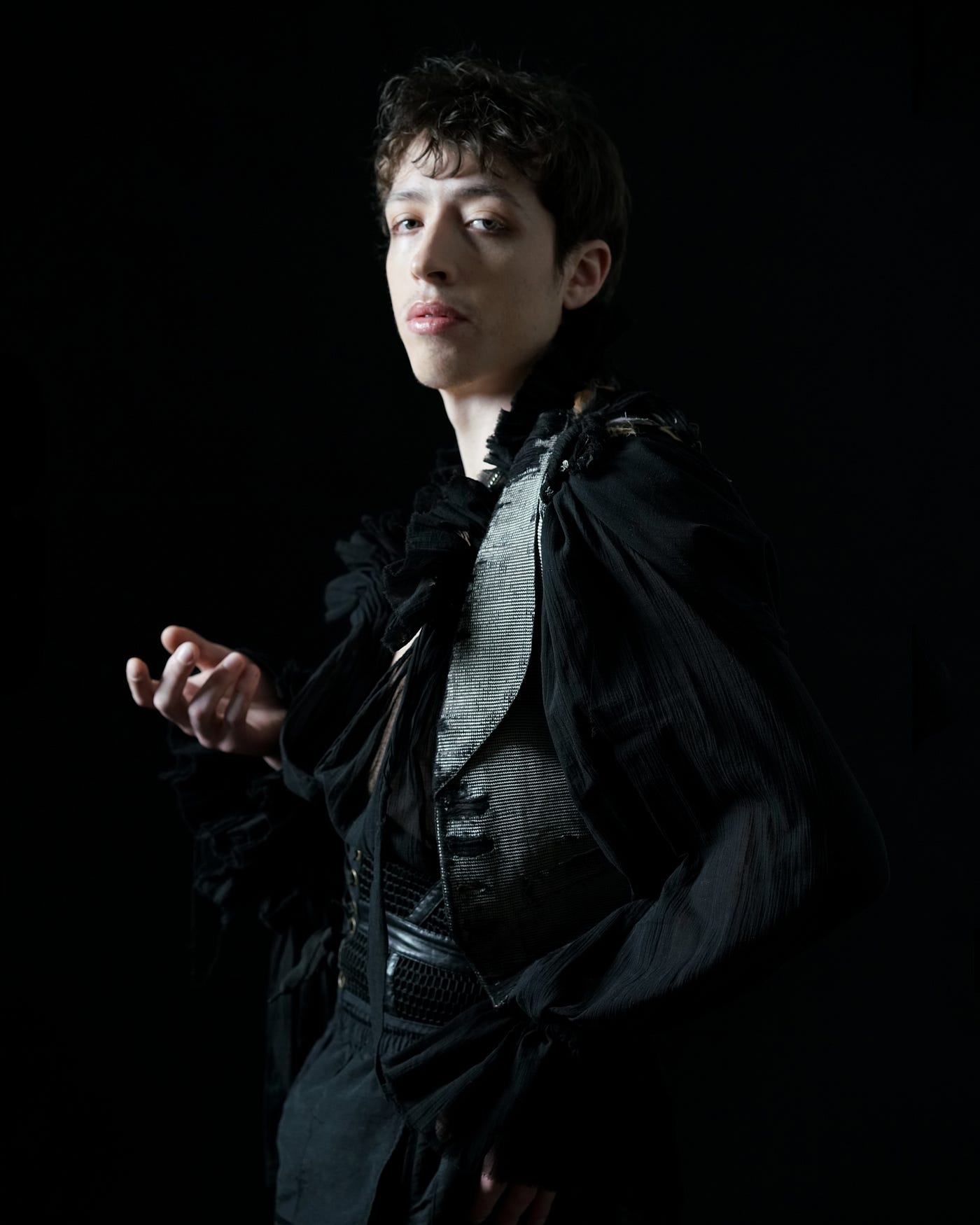
NP: What have I not asked that you hoped that I would?
TDoR: Everybody asks why Rasputin?
NP: It didn’t even occur to me to ask…
TDoR: Yeah, good.
NP: I know this is an interview, so maybe I should stop talking… But any historical event that you can put people in is interesting in its own right, gets people out of their current headspace.
But also you mentioned that this idea of following a charismatic person and, what does it mean to belong to a group led by a charismatic person… that seems like the answer to why Rasputin.
But maybe there’s a different answer that I’m missing.
TDoR:No, you answered it well. It’s just a particularly good juicy story. And it feels a little under told currently. There’s been a lot of movies, but not recently. I’m just used to talking through the story, but it’s nice to leave it a little vague, because…
NP: People will find out the story when they come here.
TDoR:Yeah. And I’m really excited for you to see the show.
Discover the latest immersive events, festivals, workshops, and more at our new site EVERYTHING IMMERSIVE, home of NoPro’s show listings.
NoPro is a labor of love made possible by our generous Patreon backers. Join them today and get access to our Newsletter and Discord! You can also GIFT memberships.
In addition to the No Proscenium website and our podcast, and you can find NoPro on Bluesky, Facebook, LinkedIn, YouTube, Instagram, and in the Facebook community also named Everything Immersive.